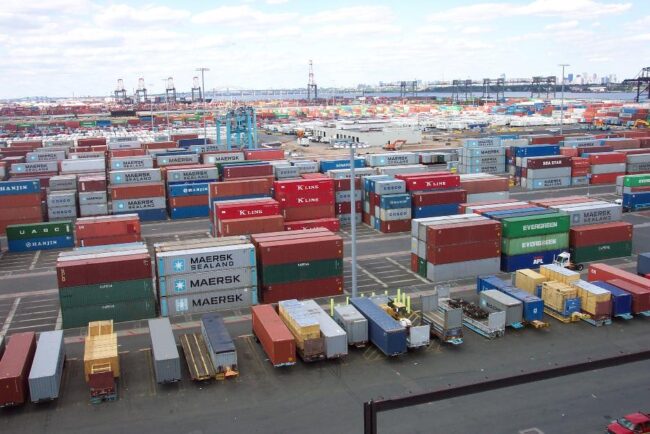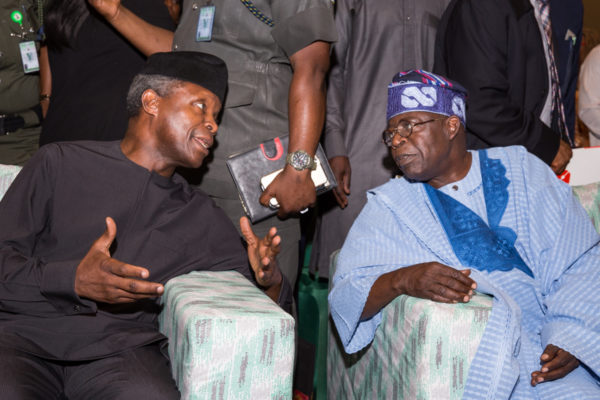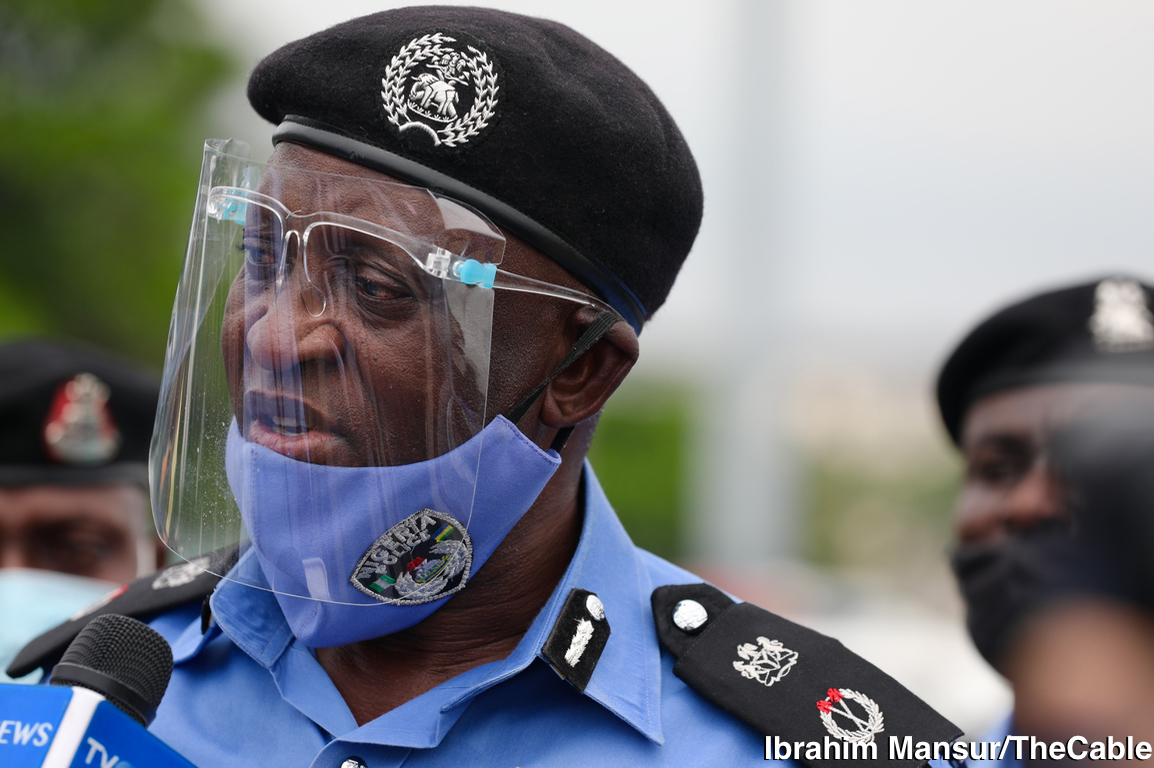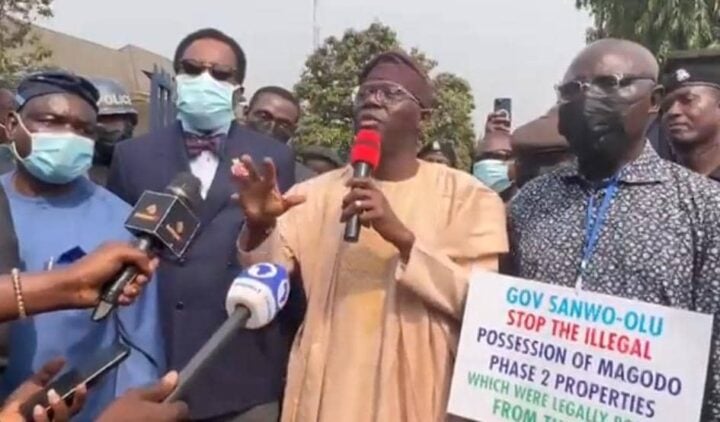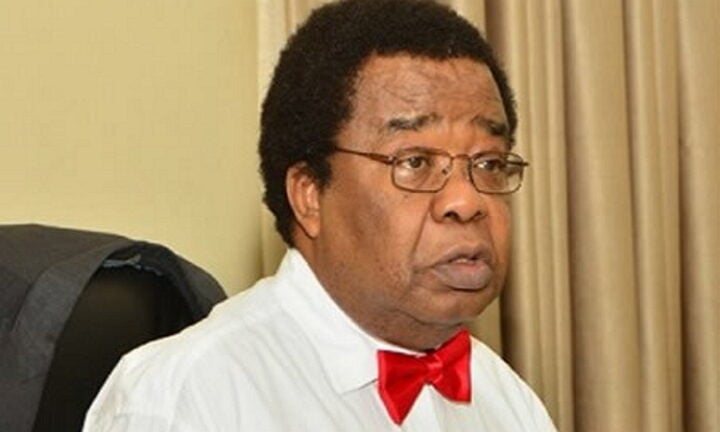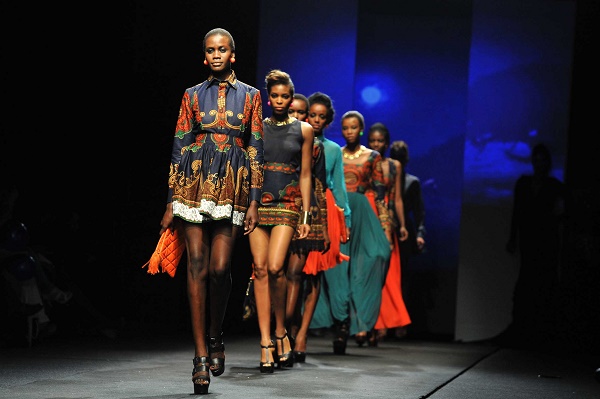Apapa port terminal | File photo
The prospect of an economic integration that presents Africa as one strong and vibrant economic bloc in the global economy is an interesting sociological cum economic proposition for scholars of both micro and macroeconomics across the continent. The excitement among pan-Africanists, when the agreement establishing the African continental free trade area (AfCTA) was signed February 05, 2021, following its adoption on March 21, 2018, knew no bound for reasons that border on the possibility of realisation of the economic potential of the continent.
The African continental free trade area (AfCTA) was created by the African continental free trade agreement among 54 of the 55 African Union nations, designed to bring about an economically integrated, prosperous, and peaceful Africa, driven by its own citizens and representing a dynamic force in the global business ecosystem, with its headquarters in Addis Ababa, Ethiopia. This, if achieved, would be following in the footstep of the Euros Zone, with a unified market structure, trade policy, customs service, and eurocentric approach to issue at the global level.
It is my belief that the process of integrating Africa into the global economy — globalisation — has so far recorded very little success because the structure on which it should be scaffolded is not yet in place. That is, talking about building up Africa, as a single economic bloc, a la Eurozone. Africanisation; if I would be permitted to use that word to conceptualise it. In other words, the superstructure of globalisation needs “africanisation” as a base, to succeed on the continent. Dealing with Africa, on the basis of individual countries, might appear beneficial to the rest of the world economic powers as it was done pre-independence, stemming from the 1885 Berlin conference, but the success achievable through such a divide-and-rule tactic is not in the long term interests of both African countries and their prospective trade partners. But hardly do they realise that. Rather, an institutionalised bilateral relationship with Africa will guarantee an enduring mutually beneficial relationship between Africa and whosoever goes into a trade partnership with it.
At the core of this, if there must be a remarkable achievement, is “unity” among the various countries that make up the continent of Africa on one hand; and among the various subregional socioeconomic groups like the Economic Community of West African States (ECOWAS), Southern African Development Community (SADC), Arab Maghreb Union (AMU), Common Market for Eastern and Southern Africa (COMESA), Community of Sahel-Saharan States (CEN-SAD), East African Community (EAC), Economic Community of Central African States (ECCAS),
Intergovernmental Authority on Development (IGAD), among others, on the other. This issue of unity becomes a very key one that needs serious addressing, if the recent experience of what happened [happens] in Ghana, where foreigners-owned shops, especially Nigerians were targeted for closure, all in the name of implementing Ghanaian trade law, is anything to go by. One would then, be forced to ask; what has become of the ECOWAS treaty, signed in 1975, that provides for free movement of persons of West African origin, and goods with the region? If it is impossible to be implemented at that level, one can imagine what happens when the principle of free trade [movement of persons and goods and services] is broadened to cover the entire continent!
Advertisement
The xenophobic attacks against fellow Africans in South Africa is another issue that has the potential to militate against a united Africa which is needed to form a strong trade bloc. The issue of stronger attachment of north African countries to the Middle East than to, their African brothers south of Sahara, is another major hurdle that must be scaled before one can hope to achieve the full potential of a free African continental trade area. For instance; will countries like Morocco, Egypt, Tunisia, Algeria, Libya Sudan, choose Nigeria, South Africa, Kenya, Ghana, Senegal, Ethiopia, over Saudi Arabia, UAE, Qatar, Iraq, Jordan, or Syria? The answer is not likely to be in the affirmative, with the benefit of hindsight. But that is not the theme of this article.
Now to the crux of the piece. Assuming we are able to find a way around the above problems, how do you get Nigeria as a nation, and by implication, Nigerians as a people to participate in, and benefit from, an Africa where free-trading across borders is allowed; from Cape Town to Cairo; from Dakar to Addis Ababa; from Lusaka to Lagos; from Maputo to Rabat?
A former governor of Enugu state, Chimaroke Nnamani, in a lecture delivered at the department of political science University of Ilorin, on November 19, 2003, titled, ‘Globalising in Poverty’; wrote: “Indeed, Nigeria with its population (about 200 million – emphasis, mine) and natural resources endowment has a great potential to compete favourably in the global market. This potential however is not realised, due to problems of weak infrastructure, inadequacy of technical manpower, and over-dependence of the economy on the oil sector.”
Advertisement
By the time we add the endemic systemic corruption to the above, then we would have to contend with a problem that is more than a handful. He went further to posit that; “If we then situate this scenario within the context of the deepening process of pauperization of the society, not necessarily as claimed to be the fault of past administrations, but by the failure of the “World System” to repose adequate entrepreneurial confidence in our polity, we can rightly argue that the exclusion principles, the result of which is abject poverty, ought to leave us out of the coming global village. That is if taken at the retaliatory dimension, the assumed crumbling of the nation-state, following the power of the entrepreneurial initiative to tear down boundaries should therefore be resisted”.
He spoke about “entrepreneurial confidence”, not being reposed in the Nigerian economy; what is the fate of those who took the extraordinary [economic] risks, siting their businesses in Nigeria, in the face of the deteriorating security situation in the country? The insecurity (in parts of the country) is something that is very fundamental to any investor’s decision, to site or not to site, business(es) in any location within the country. Will any Nigeria-based business concern be a serious participant in a unified and integrated African free trade area, when it has to contend with the burden of insecurity? It is a very big question to which answers, sincere or otherwise, can come, only from the Aso Presidential Villa; if they genuinely want to bring an end to the challenge of insecurity.
Recently, President Muhammadu Buhari promised manufacturers through their association the Manufacturers Association of Nigeria (MAN) that forex would be made available for them to be able to import raw materials. Fantastic. But beyond that, the systemic corruption that characterises the process of transacting business with agencies of the government, including, “obtaining forex”, if and when made available is so debilitating that, it becomes almost more sensible to source for it in the “black (parallel) market”- something that has been a major reason why it is difficult, if not impossible for the Central Bank of Nigeria (CBN) to stabilise the value of the naira, against international currencies like the dollars, euros and pounds sterling. The naira currently trades at about ₦415 to $1, per official rate; and about ₦480 to $1 in the parallel market – a euphemism for the black market.
It would, therefore, be very suicidal for Nigeria to rush into adopting the continental free trade area (AfCFTA), without first critically examining, how she will be a net exporter of goods and services, rather than the current import-dependence inclination of her international trade. Lest we forget, there is virtually nothing that Nigeria does not import at the moment. Even petroleum products that we have in abundance, are still being imported. Can you beat that? To my greatest surprise, I now see a packaged made-in-China, Garri, Edikainkong, and other local delicacies. We even import toothpicks. “E shock you”? This, our grossly unhealthy balance of trade/payment, is why, naira (₦415-$1, officially) is in such a weak position against the major international currencies. For us to reverse the ugly trend, and avoid the impending economic harakiri (“Zimbabwation” of the Nigerian economy), in case we plunge into the deep water of continental free trade, we need to try to strengthen our local production base of goods and services, so that we don’t end up importing packaged sachet water from Mauritania or the Central Africa Republic, and effectively turning Nigeria into a vast dumping ground.
Advertisement
For Nigeria and Nigerians to participate in AFCTA, much more attention must be focused on strengthening the micro, small and medium enterprises (MSMEs), as they form the “fuselage” of the economy. They represent the highest employers of labour as they account for about 76% of the nation’s labour force and contribute about 50% to the gross domestic product (GDP), according to the minister of state for industry, trade, and investment, Mariam Yalwaji Katagum. Serious attention must also, be paid to factors militating against their survival. Multiple taxation is one. Executive extortionism by regulatory agencies who have abandoned their core mandates of regulating an industry or a sector and have turned themselves into revenue-generating agencies is another, and it has to be tamed. Of course, you and I know that 99%, if not 100% of such revenues goes into private pockets. The most guilty among them are paramilitary establishments, like the police. Ease of doing business, as contained in Executive Order 01 of 2017, must be taken beyond the level of gazetting. It must be implemented both in letter and spirit, at least for there to be a guarantee of the survival of the MSMEs. In case you don’t know most of the home appliances from China and Korea; most of the over-the-counter drugs being imported from India are products of MSMEs. That is what strengthens the national economies. After production; what the bigger and world-renowned pharmaceutical companies in India do is; buy them, package and brand them for export. The same can be replicated in Nigeria, especially in the textile industry, furniture-making, rice-production, sugar cane cashew, cocoa, and coffee production. Even in animal husbandry.
So the government must do everything within its power to protect this very critical unit of our business ecosystem from the systemic corruption that is fast becoming an existential threat to us as a nation. This will also allow Nigeria to participate in a free trade African zone where she will be able to fully assert her authority on account of the social-economic endowments that make her the giant of Africa, with a very strong bargaining chip.
To avoid being a dumping ground, we need to focus more on industrialisation. Industrialisation could be, roughly described as the process of building up a country’s capacity to process raw materials for consumption or for further production; coupled with the capability to fabricate tools to do the processing. For instance, we need to develop our capacity to process cassava into Garri, Cassava powder, biogas, industrial starch, and other money-spinning cassava by-products to earn more from foreign trades; and also, to fabricate most, if not all, of the tools needed to get it done. Ditto for petroleum and its numerous by-products. We should at least, be able to refine petroleum products to at least, meet our local consumption needs, as opposed to the current fraudulent importation arrangement, using subsidy as a smokescreen to fleece Nigerians of much needed but scarcely available funds for infrastructural development. A city like Aba in Abia State, Nnewi in Anambra, etc., deserves special attention from the governments (federal, in collaboration with states) to make it an industrial hub, where goods could be produced in export quality and quantity.
Provision of electricity, security, good road networks, among other infrastructures that engendered “ease of doing business”, must be provided, in order to enhance our business ecosystem to better equip Nigerian businesses to compete with their peers across Africa; and the government must be very deliberate about it.
Advertisement
Abubakar writes from Ilorin. You can reach him via 08051388285 or [email protected]
Advertisement
Views expressed by contributors are strictly personal and not of TheCable.

